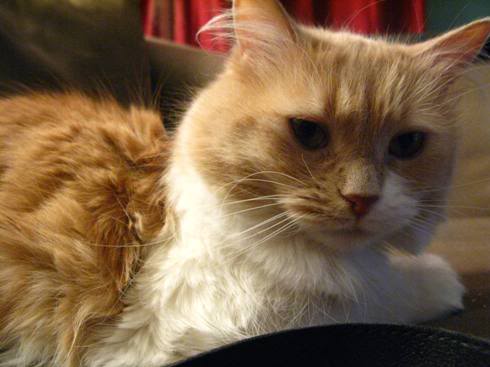When times get tough, animals are often the first to feel the belt tighten. In Winnipeg, shelters have taken a big hit in the last two years, forcing some to cut back services, Lindsey Wiebe reported today.
For the record: as someone who has absolutely no shame referring to my two cats as my daughters, this story yanks my heartstrings, hard. But the story is also useful in illustrating why antipathy to animal shelters that perform euthanasia is not a practical, nor a useful, or even a particularly pro-animal perspective.
As a wacky cat lady in training, I’m not unsympathetic towards this position. When I was young(er, the tombstone on my youth hasn’t been pounded down yet), I donated to a couple of the no-kill shelters because, I said to myself, “I don’t want my money going to euthanizing pets.”
But this rigid ideological resistance towards the work of the city’s “kill” shelter — the Winnipeg Humane Society — doesn’t help animals. A top paragraph from Lindsey’s story illustrates why. In response to falling revenue, D’Arcy’s A.R.C. has stopped accepting new animals:
As for callers with unwanted animals, “right now I’m telling them to send them to 510 Main St.,” he said, referring to the city hall address. “The city has a huge problem. They’ve not addressed it.”
That’s a slick soundbyte, but I can’t support exposing pets to city hall. I’m against cruelty to animals.

Especially for this one.
More to the point: when the times get tough, no-kill shelters don’t euthanize: they just stop accepting animals. That’s their only option. But that’s not much of an option for the WHS, which takes in shocking volumes of stray, abandoned and unwanted animals each year. And for the fact that they give 10,000 animals a year a comfortable home in a beautiful shelter or a foster home, they are sometimes pegged as wanton pet butchers by anti-euthanasia advocates who vociferously remind others not to donate to WHS because “they kill animals.”
If the world had unlimited resources for domestic pet welfare, I might agree with them. If the WHS had a steady source of income that didn’t depend on private donation, I might agree with them. But — despite common misconception — the WHS gets little government funding. So the criticism of their status as a “kill” shelter does impact their funding; and then it impacts animals. I know quite a lot of people that won’t support the WHS because of their euthanasia policy.
No-kill shelters do good work, and occupy a valuable place, and I do give money to them when I can. But they cannot be the only game in town. They can shut their doors to new animals rather than euthanize. But I would press anti-euthanasia advocates to ask: where does that leave the animals? On the street… or at the WHS, where they at least have comfort, warmth, food and a chance that someone will take them home. (Or at city hall, of course.)
A swift euthanasia is not a worse fate to being dumped in the street, in a dumpster, or in a field.
As someone who cares about animal welfare, what’s more important to me isn’t which shelter euthanizes. It’s what’s gone on in animals’ lives before they ever made it to the shelter. How did they get made in the first place? Why didn’t their daddies have their balls cut off? What’s going on in society that results in animal abuse and neglect that eventually leads to aggressive animals unfit for adoption being dropped off at the WHS and, later, euthanized for behaviour?
We need to draw down the domestic pet population, significantly. Lambasting WHS for euthanizing isn’t going to help us reach that goal — if anything, it hurts it, since the WHS also runs a key trap-and-neuter program. Care about animals? Great, I do too. But criticizing the WHS’ euthanasia policy won’t help us do any better for them.
I was going to tidy this up and add a few key points, but a lunch date with my daddy awaits. Hey, at least we have kitty pix.
Sorry, the comment form is closed at this time.